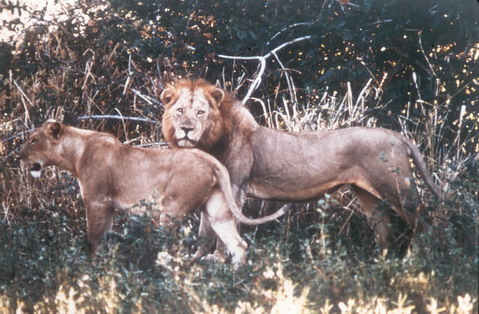NORWAY has added a new dimension to its development cooperation with Zambia by helping the southern African country in developing the potential of petroleum. Landlocked Zambia is exploring for oil and gas in Eastern, North Western and Western provinces of the country. Zambia’s minister of mines, Kalombo Mwansa, says the results of the microbial analysis of samples collected from the three provinces have been encouraging.
In view of the expected boom of the oil and gas industry, the Norwegian government is helping Zambia with preparatory work, which includes the repeal and replacement of the Petroleum (Exploration and Product) Act of 1985 to provide for two separate licences for prospecting and for production of oil and gas. Norwegian ambassador to Zambia, Tore Gjos has said the repeal and replacement of the Act would also provide for stronger legal provisions on environmental protection.
Mr. Gjos described the on-going consultancy his country is offering Zambia as “oil for development” saying it is a programme whose purpose is to make oil resources a blessing and not a curse. He berated the failure of developing countries to utilise petroleum to the maximum, citing Nigeria, one of the leading producers of oil, which has remained poor. He said preparatory work for Zambia involved strengthening the country’s institutional framework for regulating the oil and gas industry.
Under this cooperation, Norway is helping Zambia in the areas of financial management, environmental sustainability and technology and technical issues. Recently, the Norwegian and British government helped Zambia reform its mining tax to help the benefit more from its lucrative minerals. “We have been working with the government on the tax reform of the mining sector in order for Zambia to retain more of her mineral wealth for the benefit of the whole population,” Mr Gjos said.
Norway encouraged the Zambian government to engage mining companies with whom it had development agreements, as part of the process of introducing the new tax regime which came into force on April 1, this year. Norway helped Zambia with finances to get independent technical and legal advice on negotiating mining development agreements.
The new fiscal regime for the mining sector includes a 30 percent corporate tax, a new mineral royalty tax on base metals at three percent of the monthly average London Metal Exchange (LME) cash price per metric tonne multiplied by the quantity of the metal or recoverable metal sold from 0.6 per cent.
Company tax has gone up from 25 to 30 per cent while Government has also introduced a 15 per cent variable profit tax on taxable income, which is above eight per cent of the gross income and a windfall tax to be triggered at different price levels for different base metals.
For copper, the windfall tax has been pegged at 25 percent at the copper price of US$2.50 per pound but below US$3.00 per pound, 50 percent at price for the next 50 cents increase and a 75 per cent for the price above US$3.50 per pound.
Government expects to earn US$415 million additional tax revenue this year from the mining sector, which would create higher liquidity in the economy and help the local currency, the kwacha to appreciate further against major international currencies. Mr Gjos said the revenue would also provide more prospects for the development of infrastructure that would create extra opportunities for economic expansion.
Treasury data shows that Zambia in 2007 only got US$142 million from US$4.7 billion in copper and cobalt exports by foreign owners of its vast copper and cobalt mines. This is despite a 400 percent increase in global metals prices in the past seven years.
President Levy Mwanawasa announced on January 11 when he opened the second session of the 10th national assembly that government had decided to introduce windfall tax on copper and raised mineral royalty to ensure Zambia’s maximum benefit from mineral resources. The new tax regime has already started paying dividends with the Zambia Revenue Authority collecting K29.7 billion in mineral royalties following the introduction of the new fiscal regime for the mining sector this year. This is up from an average of K5.2 billion that the mining companies contributed per month in 2007.
Zambia and Norway’s development cooperation goes back more than 40 years. Zambia has been one of the largest partners of Norway for many years Norway now, however, channels most of the financial support through the Zambian budget as budget support and has selective support to democratic governance institutions covering areas like anti-corruption, the auditor-general’s and the judiciary.
Norway has supported Zambia in infrastructure development like hydropower, roads and water supply.
Norway has been a large supporter in the education, agriculture and wildlife sectors in the south Luangwa national park and the Kafue national park.

No comments:
Post a Comment